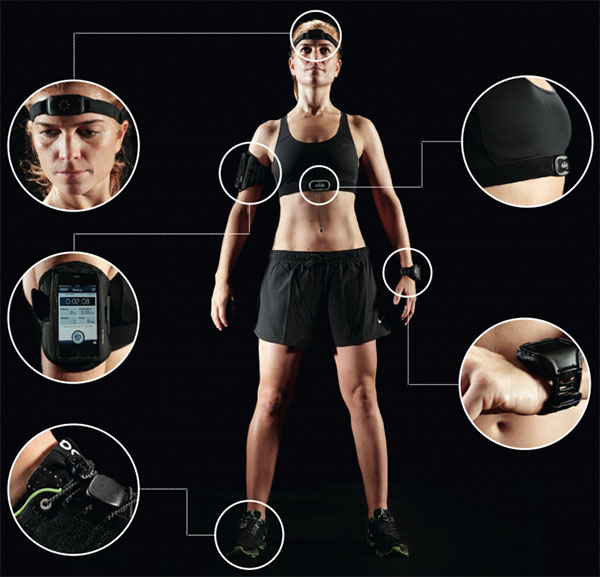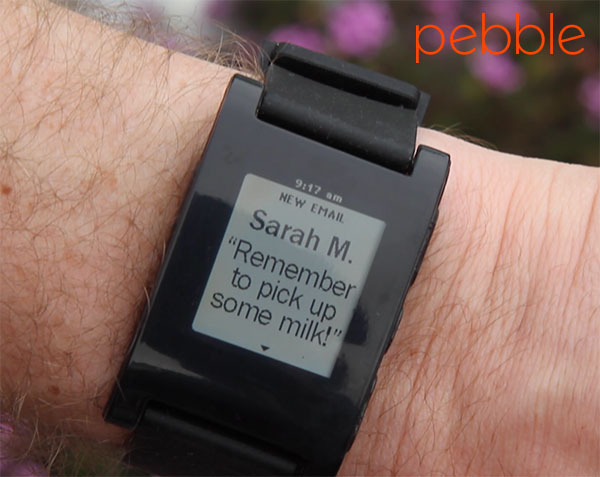Can wearable devices become everyday accessories?
It all started with a glass. Now its on your wrist or your entire body is covered with it. Yes, I’m talking about wearable tech. But can wearable devices become our everyday accessories?
Approximately 2 years ago, Google announced the Google Glass and until then we were still busy with discussing what is the next best smartphone or tablet. The discussion of wearable computing really fired up with the publicity Google Glass gained and today, wearable tech is one of the hottest topics tech community is discussing.
My first close personal experience with wearable devices started with my purchase of a Pebble smartwatch last month. I was at PennApps, one of the largest student hackathons in the world, organized at the University of Pennsylvania. Pebble, a new company which is renown as having the most successful Kickstarter campaign to date, was one of the partners. They offered the watches with 50% discount so we could write apps for it. I thought this was the perfect opportunity to get my hands on a wearable device, but I still wasn’t sure if a wearable device can become an everyday accessory.
So far, my experience with the Pebble has been great. Besides the regular watch functionality, I can check my texts on my watch, check the weather, get notifications from my phone, set a vibration alarm to wake me up after a daytime nap, check my notes, track my sleep cycles, look for places nearby or check into Foursquare locations. The list goes on and on. However, I’ve come to one realization of my frequent use of this technology: I love it, because it is unobtrusive. People barely notice it and it doesn’t interfere with the way I communicate with people, the way I do certain things. It just adds another layer of information whenever I need it. Whereas if I was using a Google Glass, everyone would notice it. They would even be freaked out. I’ve tested the Glass on various occasions, and most of the people who had it were attention whores in big crowds – not because they want to be an attention whore, it’s just because of this weird thingy on their face. Oh yes, there is a “cool” factor too. So if you hear people dying to get a Google Glass, ask yourself: Would you wear it everyday? Unless you already are used to glasses, which I’m not even though I had to use it for some years now, it’s a new whole layer on your body. So my hypothesis is that “wearable devices can become everyday accessories if they are unobtrusive and they do not interfere with the way we communicate with people“.
I think Google glasses are great and can be very useful for specific purposes. Like doctors using Google Glass and tourists using Google Glass for guidance or real-time language translation are no-brainers. However, waking up everyday and putting this device on your face? I think changing your view of this world with a layer of technology 24/7 is a big commitment to make. On the other hand, devices like Pebble are much less obtrusive in the way they affect our communication with other people in our daily lives.
Another great example is OMSignal, a Montreal-based company which I’ve visited last summer. Their main product is this t-shirt that can interact with your smartphone to give you useful biometric data. Heck yeah, it can even tell you if you’re happy, unhappy or stressed based on the cardiac and respiratory data it captures from your body.
That being said, seeing the trend in wearable devices, Google recently announced Android Wear. A tweaked version of Android operating system for wearable devices. Google’s commitment to this technology shows how this technology will be shaped in the future. On another note, Facebook has just acquired Oculus Rift today, another wearable device with immersive virtual reality, for $2B.
It’s up to you to make these devices your daily accessories or not; however at the end of the day, it is important how your relationships with others are effected by these devices. One thing is for sure: Society will question if it’s the “quantified self” we are proposing or “quantified others”.

